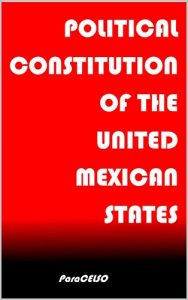UPDATED EDITION FEBRUARY 24, 2017
On February 5, 1917 a dynamic and vigorous era began in Mexico, this was possible with the signing of the Constitution made in the city of Queretaro. It was not a "simple" Magna Carta, which is no small thing, it was a document emanating from the revolutionary process that made it the first constitution that openly expressed a social agenda. Among its relevant points, it emphasizes the interpretation it made of Democracy as a system of life based on the constant economic, social and cultural improvement of the people and not only as a legal or political framework. With this the State initiated a series of commitments for the construction of a Welfare State, although the concept as such did not exist in 1917.
The Mexican Constitution has also been noted for being a flexible document that addresses the need of the Mexican people to change their maximum regulatory framework according to the demands of each time. It is necessary for anyone interested in their study to have the current text, recalling the Latin sentence Ignorantia juris non excusat, ignorance does not exempt from compliance with the law.
This particular edition has the most modern elements of electronic publishing, which allow you to highlight contents and include annotations, in addition to being able to see the annotations that others make to it, besides that its format does not require to be consulted only when there is a connection To the Internet, but can be reviewed in areas lacking Wi-Fi or mobile data.
Finally, it is necessary for the publisher to continue updating the text, according to the additions, reforms or derogations that the subsequent congresses make so that when buying the text will permanently have an updated version of it.
On February 5, 1917 a dynamic and vigorous era began in Mexico, this was possible with the signing of the Constitution made in the city of Queretaro. It was not a "simple" Magna Carta, which is no small thing, it was a document emanating from the revolutionary process that made it the first constitution that openly expressed a social agenda. Among its relevant points, it emphasizes the interpretation it made of Democracy as a system of life based on the constant economic, social and cultural improvement of the people and not only as a legal or political framework. With this the State initiated a series of commitments for the construction of a Welfare State, although the concept as such did not exist in 1917.
The Mexican Constitution has also been noted for being a flexible document that addresses the need of the Mexican people to change their maximum regulatory framework according to the demands of each time. It is necessary for anyone interested in their study to have the current text, recalling the Latin sentence Ignorantia juris non excusat, ignorance does not exempt from compliance with the law.
This particular edition has the most modern elements of electronic publishing, which allow you to highlight contents and include annotations, in addition to being able to see the annotations that others make to it, besides that its format does not require to be consulted only when there is a connection To the Internet, but can be reviewed in areas lacking Wi-Fi or mobile data.
Finally, it is necessary for the publisher to continue updating the text, according to the additions, reforms or derogations that the subsequent congresses make so that when buying the text will permanently have an updated version of it.












